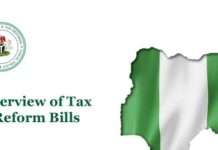Nigeria’s Economy Rebased: GDP Soars to ₦372.8 Trillion in 2024 After Statistical Adjustment
Nigeria’s economy has recorded a major leap following the rebasing of its Gross Domestic Product (GDP) by the National Bureau of Statistics (NBS). The revised figures show the country’s GDP rose from an earlier estimate of ₦80 trillion in 2019 to ₦205.09 trillion after the update — and has now reached ₦372.82 trillion in 2024.
This major statistical shift provides a clearer picture of Nigeria’s true economic size, incorporating newer industries and adjusting for more recent data.
GDP rebasing is the process of changing the base year used to calculate a country’s GDP. The base year serves as a benchmark for comparison, reflecting the structure and prices of the economy in a specific year.
Nigeria’s new base year is 2019, replacing the outdated 2010 base year. With the rebasing, economic sectors like digital technology, e-commerce, fintech, entertainment, and other informal industries are now properly accounted for.
From ₦80 Trillion to ₦372 Trillion: What Changed?
2019 GDP (Old Estimate): ₦80 trillion
2019 GDP (Rebased): ₦205.09 trillion
2024 GDP (Latest): ₦372.82 trillion
The rebased figure for 2019 shows a 156% increase compared to the old data, while 2024 GDP reflects continued real growth driven by various sectors.
According to the NBS, Nigeria’s economy also grew by 3.13% year-on-year in Q1 2025, maintaining an upward trajectory despite inflation and rising living costs.
Why This Matters To You
1.Accurate Economic Data
The rebasing allows government agencies, investors, and international organizations to work with updated economic information, making room for better planning and decision-making.
2.Reflecting New Sectors
Before now, emerging sectors like crypto trading, digital content creation, and mobile app businesses were either underreported or left out. These are now included in national calculations.
3.Improved International Ranking
While Nigeria’s economy is now estimated at ₦372 trillion, it remains Africa’s fourth-largest economy behind Egypt, South Africa, and Algeria, due to exchange rate weaknesses.
What does this mean to the poor.
Despite the impressive figures, the rebased GDP does not directly translate to improved living standards for ordinary Nigerians. High inflation, unemployment, and poverty continue to challenge the country’s development.
Experts have advised that government policies must now focus on job creation, food security, and improved infrastructure to make economic growth more inclusive.
The rebasing of Nigeria’s economy is a positive step toward transparency and accurate reporting. With a GDP of over ₦372 trillion, Nigeria is undoubtedly a giant – but the challenge remains turning these figures into real progress for its people.
Stay informed with Headlineswave.ng










